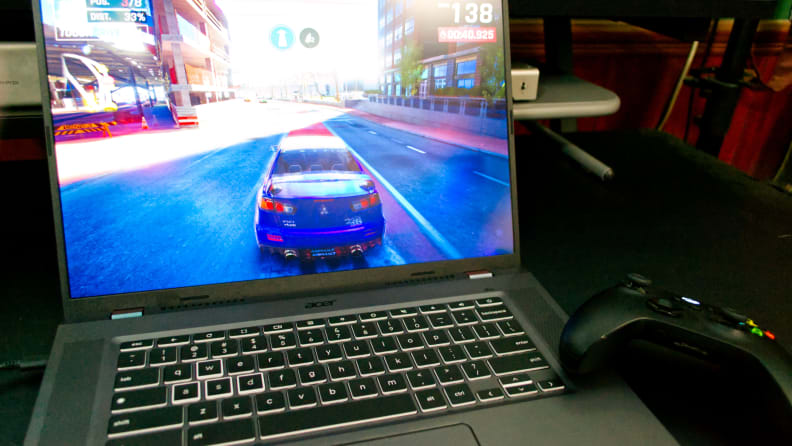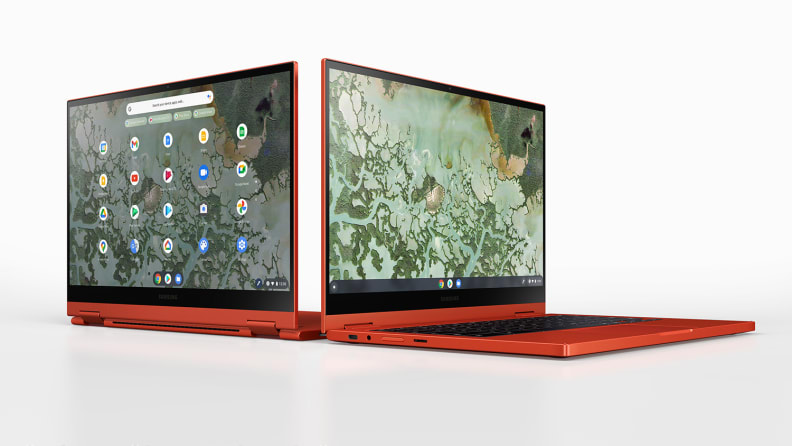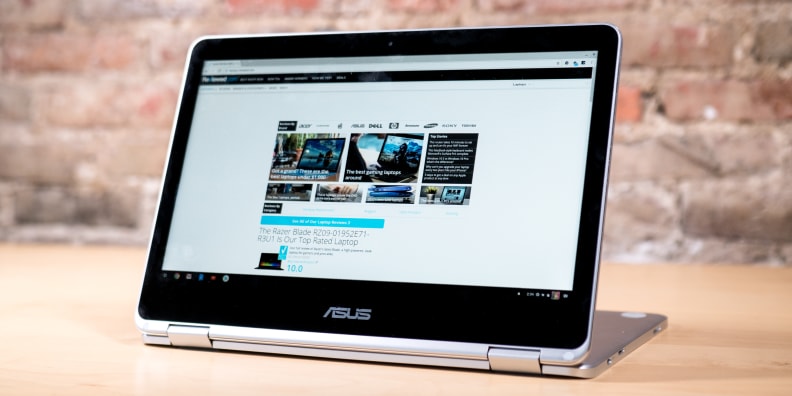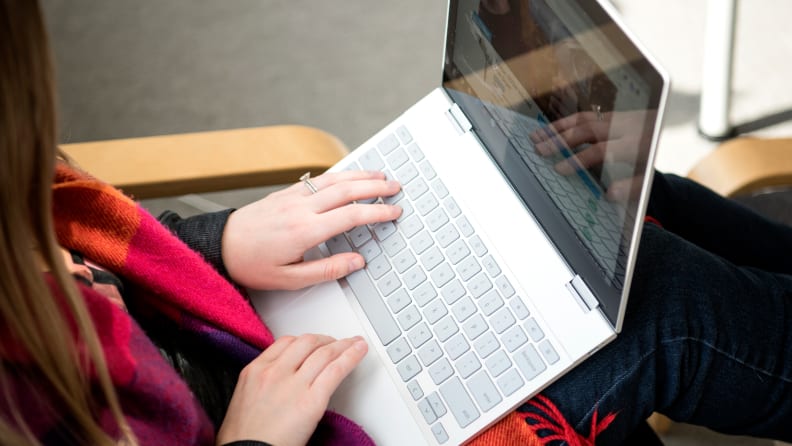The best Chromebooks are simpler alternatives to traditional laptops for people who don’t need high-powered computing. They’re meant for light usage and feature long battery life.
Our top pick is the Acer Chromebook 516 GE
(available at Amazon)
. Not only is it powerful and well-built, but it was designed specifically for cloud gaming. If that’s not your jam, there are plenty of other options from traditional clamshell bodies to versatile 2-in-1s.

Credit:
Reviewed / Kris Wouk


Credit:
Samsung

How We Test Chromebooks
Since Chromebooks aren’t really sold for processing power, we adjust our testing accordingly. We do benchmark the processor. But we generally focus on usability, including the quality of the screen and keyboard, and other factors like battery life. We rate overall usability by combining these factors into a weighted score.

Credit:
Reviewed.com / Jackson Ruckar
Because Chromebooks are mostly designed for running web applications like Google Docs, we use two different web benchmarks: Basemark and Speedometer. These test the processing power of the laptop in a web browser: for all of them, we used Google Chrome.
Since most people will tote their Chromebooks around, brightness in different settings is important. We measure this with a colorimeter, a handheld device that measures luminance. We examine the white levels and black levels at max brightness and then again at 50% brightness.
Finally, we test the battery life of each laptop to see how long they last between charges. With their displays adjusted to a moderate brightness of 200 nits, we set them to continuously cycle through popular websites. This simulates idle web browsing, and we time how long each laptop does it until the battery dies. We also consider human factors like how comfortable the screen is to look at and how easy the keyboard is to type on.
What’s the Difference Between a Chromebook and a Laptop?
Chromebooks stand apart from Macbooks and Windows laptops. ChromeOS isn’t a full-fledged operating system in the same sense as Windows or MacOS.
You’ll be spending most of your time in the Chrome browser using web-based tools. You can install Android mobile apps for extra functionality, but it’s more limiting than using desktop-class software. Likewise, you’ll typically find less onboard storage. Instead, you’ll rely on cloud storage services like Google Drive.
Without access to desktop-class software, you won’t be able to perform tasks like audio editing or install mandatory workplace software for most jobs. That may make this a poor choice of primary device for some folks.
But if you’re fine doing most of your work in a browser, Chromebooks can be a great way to save money. They’re significantly cheaper than their full-fledged counterparts, with a solid Chromebook usually running around $400.
How to Choose the Best Chromebook for You
Running Chrome OS (aka Google’s default browser), Chromebooks are inexpensive and largely virus-free, a great option for college students. Equipped with low-power processors, Chromebooks typically have good battery life and are fanless. That said, they’re not the most powerful laptops in the world. Most of the time they can only handle everyday tasks like browsing the web, checking e-mail, and watching Netflix.
Display Size
Most laptops range in size from 13-17 inches. Generally, smaller ones are meant for lighter work, and larger ones give you more screen space for heavy-duty work like video editing or intense gaming.
Accordingly, apart from a couple of 16-inch gaming Chromebooks, most of the laptops we’ve tested here float around 13-14 inches. For most people, that hits a great spot for lightweight portability while still giving you a clear look at your web browsing or streaming video.

Credit:
Reviewed / Jackson Ruckar
A Chromebook’s size can influence how easy the keyboard and trackpad are to use, which is important. Interacting with your laptop should be as smooth as possible.
Size can also affect the number of included ports, which you’ll want to pay special attention to. If you’re streaming intense games, a Chromebook with an Ethernet port for hardwired Internet connections can be a huge benefit. If you attach extra devices, you’ll want a healthy number of USB ports, as well.
ChromeOS
In an age where so much software lives online, a Chromebook may serve you better than you’d think. Plenty of people live on Netflix, Gmail, and Google Docs already. Add in online photo editors like Pixlr, and you can do almost anything in a browser. Many web apps can even work offline for those rare occasions you don’t have Wi-Fi.
Chromebooks have the added bonus of being virtually virus-free since they’re running Linux under the hood. Finally, they’re generally far cheaper, since they don’t need as much processing power.
Windows is still the dominant OS these days, so for certain games or intense work in editing photos and videos, you’ll probably want to stick to Microsoft for your main machine. But the nimble versatility of a Chromebook can be surprising.
Under the Hood
Chromebooks don’t need as much power, but hardware specs still matter. The processor, graphics card, RAM, and storage determine your laptop’s capabilities. For browsing the web and using office software, lower-power chips like Intel’s i3 and i5 are more than adequate.
You can get away with 4GB of RAM in a Chromebook, but given how RAM-intensive modern web browsing can be, we don’t recommend it. Stick to 8GB if you tend to open lots of tabs, use lots of browser extensions, or just want to future-proof your laptop.











